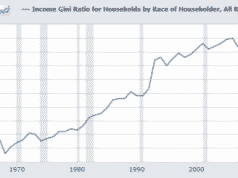It is the norm these days for climate scientists to make all sorts of pronouncements. Syed Iqbal Hasnain, the expert at the center of the Himalayan glaciers controversy, told Time magazine late last year that:
The debate is over. We know the science. We see the threat. The time for action is now.
Some months earlier, Canada’s climate modeler, Andrew Weaver, declared:
my colleagues and I at the Intergovernmental Panel on Climate Change.have been as clear as we know how about the science and the measures needed.
Yet despite what these gentlemen seem to think a scientist’s job entails, it is not the mandate of the Intergovernmental Panel on Climate Change (IPCC) to give advice. According to the organization’s own website, it is supposed to be:
policy-relevant and yet policy neutral, never policy-prescriptive.
This is because science is about gathering and presenting data. That’s it, that’s all. Deciding what to do in response to the data is an entirely different activity.
Society as a whole must choose how to respond to scientific information. A range of possibilities must be explored and debated. Different points of view must be considered. Public concern about global warming must be weighed against public concern about health care and education.
Back in 2007, a Der Spiegel journalist observed:
the IPCC is not a political group whose goal is to exert pressure, but a scientific institution and panel of experts. Its members ought to present their results and analyses dispassionately, the way pathologists or psychiatrists do when serving as expert witnesses in court, no matter how horrible the victim’s injuries and how deviant the perpetrator’s psyche are.
Precisely. When a forensic pathologist gives testimony at a murder trial he describes bruises, lacerations, and bullet holes. It is not his job to decide whether the accused is guilty. It is not his job to determine the length of sentence a guilty party should receive. Nor is it appropriate for him to opine to the media about how such murders might be prevented.
Personally, I’ve had it up to here with scientists who sneak their political views into the conversation beneath their lab coats. We need clarity about where an individual’s scientific expertise begins and ends. Scientists owe us professional, circumspect information – not political opinions masquerading as scientific fact.
So the next time you hear a glacier specialist declare that the debate is over remember that the same Syed Iqbal Hasnain who expressed such strong political opinions appears to have been startlingly ill-informed regarding the glaciers about which we’re told he’s an expert.
And the next time you hear a climate modeler talk about specific measures that must be adopted in order to avert calamity remember exactly what his job is. It’s to program a computer with hundreds of assumptions about the natural world – in other words, educated guesses. It’s then to produce “story lines” and “projections” about what the future might look like in the unlikely event that most of those educated guesses hit the bullseye.
In the broader debate about climate change, the opinions of someone who does this for a living are merely that – one man’s opinions.





